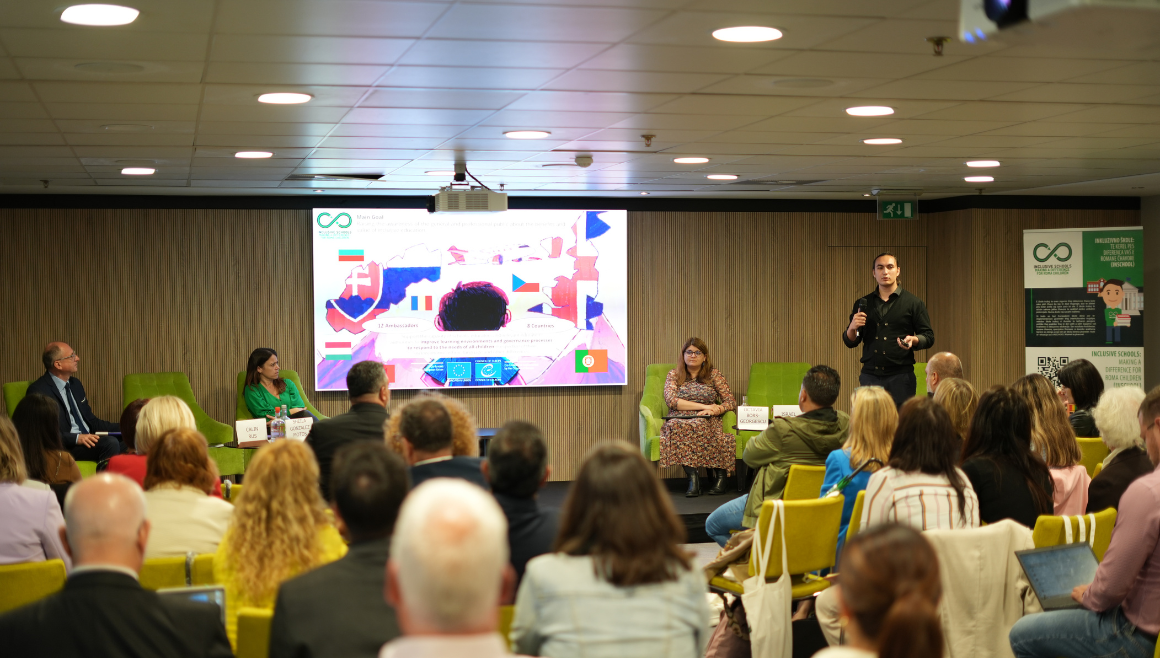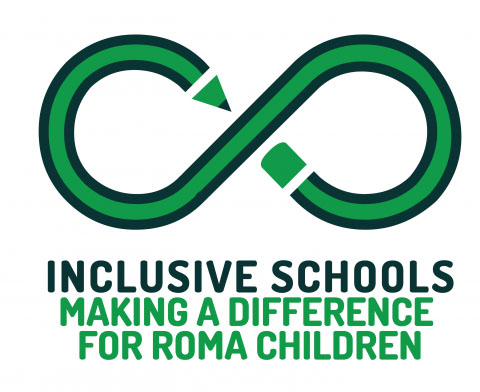Education, which stands as a fundamental right, has an important role in breaking down the poverty cycle for marginalised groups, including Roma. However, it can only be as effective if interlinked with other essential pillars of inclusion, such as employment, health, and housing. Therefore, the educational framework and environment must promote quality inclusive education and learning, ensuring that all students, especially those facing vulnerable circumstances, can learn.
These, among others, were among the main conclusions from the Final Conference of the European Union and Council of Europe Joint Project “Inclusive Schools: Making a difference for Roma children” (INSCHOOL), which was held with its partners and stakeholders on 28 May 2024 in Brussels. Over a hundred participants came together in-person and online, from the four implementation countries (Czechia, Portugal, Romania, and Slovak Republic) and beyond. The conference took stock of the project’s activities, lessons learned and added value concerning inclusive education for Roma and other marginalised children.
In recent years, the INSCHOOL project has been at the forefront of promoting quality inclusive education across several European countries. It aims at bridging the gap between policy and practice, ensuring that all students, regardless of their backgrounds or abilities, have equal and equitable access to quality education.
“A vibrant civil society and a young population can only bring extraordinary benefits to our societies. INSCHOOL developed a solid methodology and know-how, serving as a foundation for more focussed approaches to eliminating discrimination and fostering inclusion.”
- Hallvard Gorseth, Head of the Anti-discrimination Department, Directorate of Equal Rights and Dignity, Directorate General of Democracy and Human Dignity of the Council of Europe
“One thinks that Roma children cannot do as much as other children. I am afraid it is quite the contrary”.
- Gyula Cserey, Head of Strategy and Investment Unit, Directorate General of Education, Youth, Sport, and Culture, European Commission.
The programme was divided into four sessions, allowing discussions on each component of the project, including the experiences from the first two project cycles (2017 – 2021).
Session 1: The initial session focused on the transition between different phases of the INSCHOOL project, specifically moving "From Practice to Policy Level." In the previous cycles, the emphasis was placed on practical implementation, collaborating with schools to adopt or adapt inclusive school education plans and support them into translating these into reality. The third phase shifted its focus to policy-level interventions aligned with high-quality inclusive education principles and standards at European and international levels.
Session 2: During the second session, the international component of the INSCHOOL project was discussed. This included highlighting the value and practical application of the learnings of international study visits, the training course on "Education Policy-Making Based on Inclusive Values and Data," and the benefits of the Inclusive Education Ambassador initiative.
Session 3: During the third session, participants were introduced to studies related to educational desegregation measures across Europe. Researchers delved into the findings of two specific studies: the "Mapping Study: Trends and Pathways Towards Educational Inclusion" and the "Feasibility Study on Busing as a Desegregation Measure in Education in the Slovak Republic."
Session 4: The last session provided an opportunity for discussion on enabling factors for the educational inclusion of vulnerable groups, including the Roma community. Current trends and data, as outlined by the Fundamental Rights Agency and the Portuguese School Inspectorate, were presented, along with EU framework and instruments supporting Roma inclusion and participation.
The INSCHOOL project ran between 2017 and 2024, in three different cycles, co-funded by the European Union and the Council of Europe, and implemented by the Council of Europe. Actions on Quality Inclusive Education remain among the priorities of the Strategic Action Plan for Roma and Traveller Inclusion (2020 – 2025), in particular the strategic objective 3 “Supporting access to inclusive quality education and training”.
Related resources:
- Recommendation CM/Rec(2020)2 of the Committee of Ministers to member States on the inclusion of the history of Roma and/or Travellers in school curricula and teaching materials
- Recommendation CM/Rec(2009)4 of the Committee of Ministers to member states on the education of Roma and Travellers in Europe
- Recommendation Rec(2000)4 of the Committee of Ministers on the education of Roma/Gypsy children in Europe
- Reference Framework of Competences for Democratic Culture (RFCDC)


